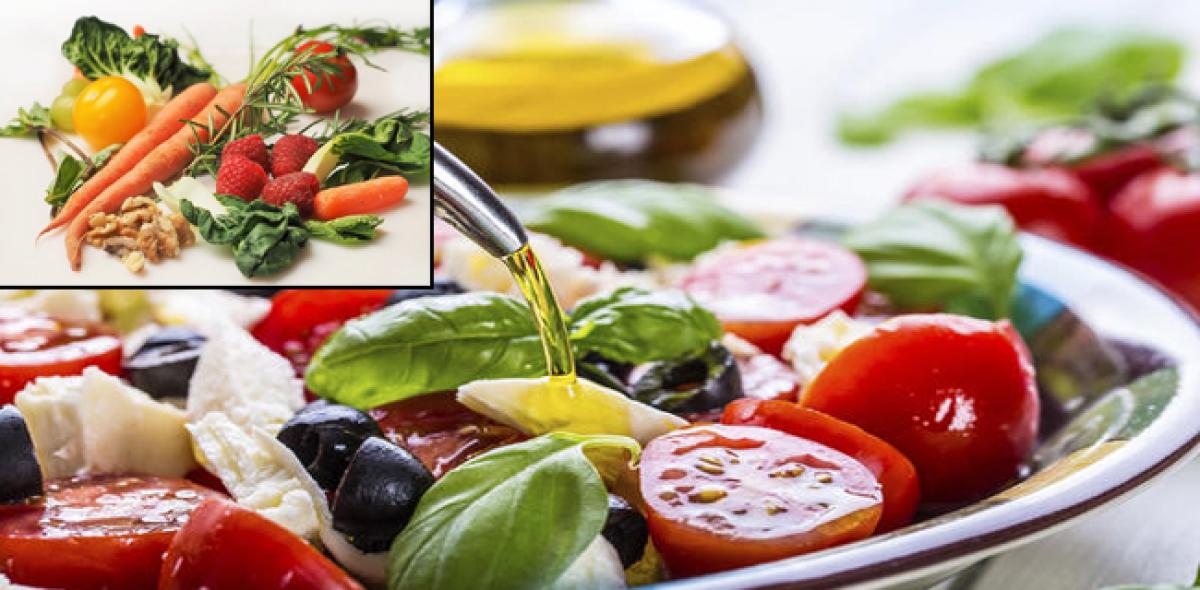Must eat foods for cancer patients

Despite major advancements in methods of treatment, cancer continues to be the most dreaded disease in the world, with its very name evoking the image of impending disaster. Ironically, even the chemo and radiation which are the established cures come with a plethora of side-effects.
Despite major advancements in methods of treatment, cancer continues to be the most dreaded disease in the world, with its very name evoking the image of impending disaster. Ironically, even the chemo and radiation which are the established cures come with a plethora of side-effects. Not only does the patient lose hair, but also strength, vitality and immunity. One needs every ounce of energy one can marshal to survive this scourge.
Cancer patients have to make sure that they eat what empowers them and totally avoid what weakens them. So every morsel that goes past their lips must be a friend instead of a foe.
Some of the best food items for them are:
Grapes: Both grapes and grape juice are rich sources of resveratrol, a type of natural phytochemical. In laboratory studies, resveratrol prevents the kind of damage known to trigger the cancer process in cell, tissue and animal models.
Resveratrol also slows the growth of cancer cells and inhibits the formation of tumors in lymph, liver, stomach and breast cells. It triggers the death of leukemic and colon cancer tumours and blocks the development of skin, breast and leukemia cancers. Black grapes are particularly good.
Make sure that the grapes are pesticide-free. Sorry but wine doesn't qualify.
Apples: Apple peels have potent antioxidant and antiproliferative effects on human cancer cells in a petri dish. They work best against estrogen receptor negative breast cancer, which is much harder to treat than estrogen receptor positive breast cancer.
Ginger: It forces cancer cells to commit suicide in a process called apoptosis. The beauty is that it leaves the healthy cells around them unharmed. Trials on ovarian cells in lab animals have been very encouraging.
Garlic: Its pungent cloves too have a similar impact, particularly in gastrointestinal cancers.
Turmeric (haldi): Curcumin in the spice interferes with the cell-signalling pathways, making it impossible for cancer cells to grow and spread.
Leafy greens and cruciferous vegetables: When chewed, these release antioxidant sulforaphane that not only prevents but also fights colon and prostate cancers. However, guard against overcooking.
Berries: DNA mutation and cancer are caused by oxidation. Blueberries, strawberries, raspberries and blackberries fight it valiantly.
Green and black tea: These have antioxidant kaempferol which has proved promising especially in the battle against breast cancer. Brew your own teas. Bottled ones (iced tea) are not that good.
Tomatoes: These are teeming with lycopene antioxidant which is most effective on prostate cancer.
The patients should procure all the needed vitamins and minerals through whole foods instead of supplements. B-complex vitamins can be had from whole grains, spinach, peanuts, dried beans or peas and fresh oranges. Spend at least 30 minutes thrice a week or more in gentle sun and consume sufficient quantity of mushrooms, fortified almond milk, cheese, cereals, spinach, potatoes, orange juice and soy yoghurt for Vitamin D. If non-vegetarian, go for eggs and fish.
Now the foods that have to be shunned. The first item is man-made sugar. Eating sugar leads to the production of insulin, a hormone that the body utilises to regulate sugar levels, metabolism and cell growth.
Unfortunately, cancer cells also grow, multiply and spread using insulin as fuel. The more insulin you have in the body, the more cancer will thrive, says CEO of Memorial Sloan-Kettering Cancer Center Craig Thompson.
This finding is confirmed by a University Rey Juan scientist Custodia Garcia-Jimenez who wrote in a recent article: "We are surprised to realise that changes in our metabolism caused by dietary sugar impact our cancer risk. Changing diet is one of the easiest prevention strategies that can potentially save a lot of suffering and money."
Also cut down red meats and saturated fats drastically, if not completely.
By Amar Chandel
(The author is a health specialist and author of "Perfect Health in Twenty Weeks" and "Stress to Serenity". He can be reached on [email protected]. The views expressed are personal)

















